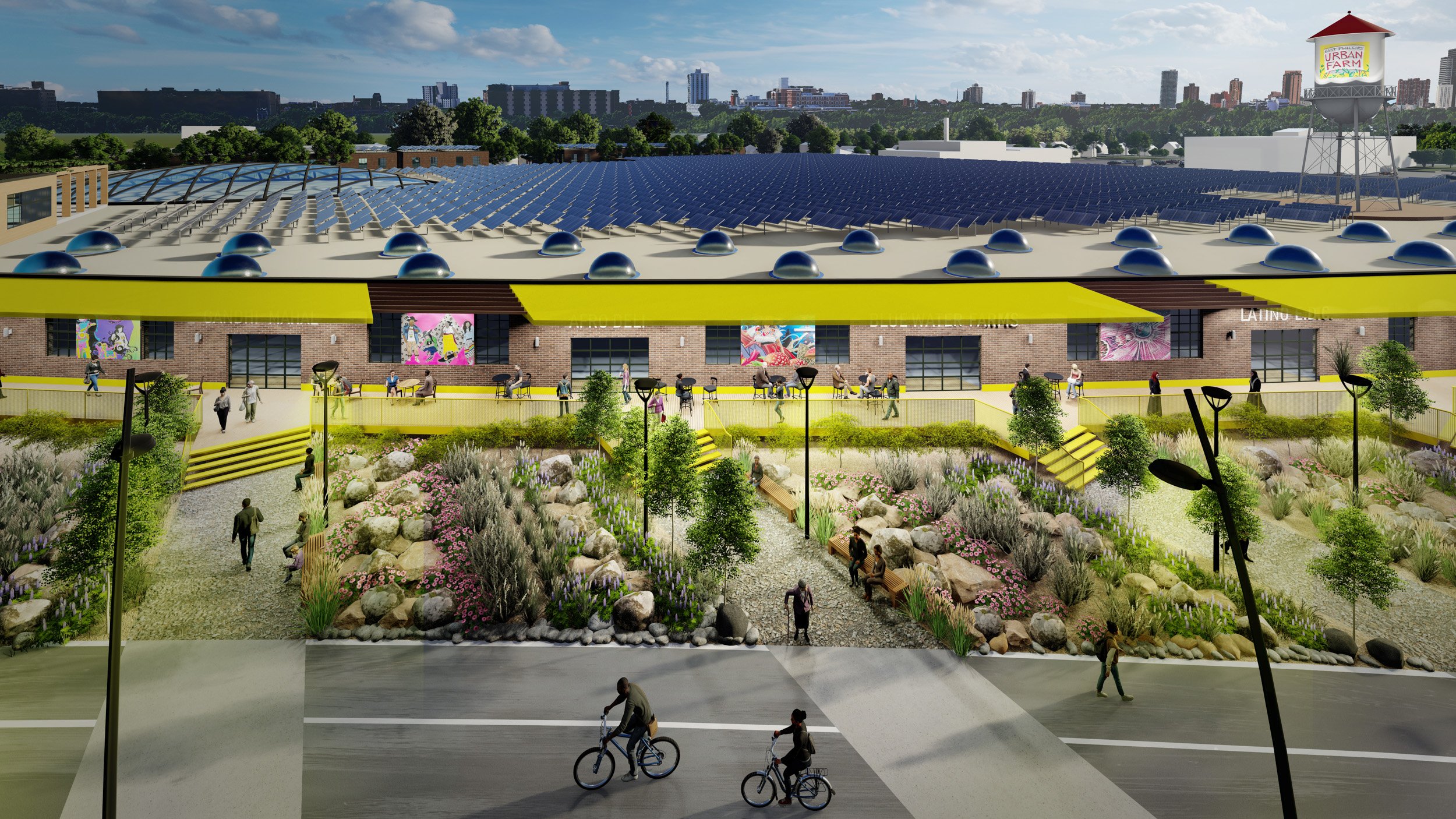
FAQ
We did it! We showed up. We called. We advocated. We worked tirelessly side-by-side. We stood up to the City and said, “no more pollution.” We told the story of what else was possible.
Finally, after nine years, and with legislative support, EPNI will be buying the Roof Depot warehouse. Now we’ll be working with the community, architects, and developers to create this local hub of fresh food, green jobs, clean energy, affordable housing, sustainable innovation, financial equity, and more. Here are some answers to frequently asked questions about what happens next.
-
This vision already has hundreds of volunteers and thousands of followers. We’d love for you join them!
👉 Follow us on Twitter, Instagram, and Facebook.
👉 Contribute your skills to any one of our numerous volunteer teams. EPNI teams continue to work on:
Sharing our story of just and sustainable development locally and nationwide;
Removing other public health threats to the neighborhood (like Bituminous Roadways and Smith Foundry); and
Organizing events that build and support community.
Some skills we can use more of include designing graphics and social media, translating and interpreting, flyering, tabling, writing, grant-writing, mentoring, consulting, solidarity work with other local EJ movements and more! Sign up here.
👉 Help us raise $750,000 for various purchase- and development-related costs so we can get to work! (While most of this will come from grants, we need individual support too.)
Donate to the EPNI capital campaign here or mail payments to EPNI.
-
The site cost is $11.4 million, of which EPNI will pay $3.7M. The $3.7M is due by September 8, 2023, via, e.g., a letter of credit or personal guaranty. The state will pay the rest by the July 2024 closing.
Community-oriented investors have already raised the $3.7 million, pending inspections and due diligence.
-
By July 2024, the sale will be finalized, after EPNI completes standard buyer due diligence. (Until then, the City retains control of the site.) Then EPNI will start renovations.
-
Getting the building ready for commercial tenants will cost roughly $10 million and be completed by Summer 2025. That money will come from a mix of grants (foundations and public agencies), investors, and loans.
-
Those will be the new construction along the west side of the property and will cost an additional $12-$15 million. We’ll start construction on the 60 planned units as soon as we have enough funds.
-
Per the community’s wishes (e.g., fresh food, green jobs, clean energy, financial equity):
A high-tech indoor urban farm fertilized by aquaponics operations
A vast solar array on the flat, unobstructed roof
Job training sites
Cafes, cultural markets, and other community gathering spaces
Artists’ studios and rentals
Resources for unhoused neighbors and more.
-
The East Phillips community approved an ownership structure of one third each to:
1) East Phillips residents;
2) building business tenants; and
3) outside investors.
These three groups will also manage the property. This will build wealth for each group. Every dollar we are able to raise through donations and grants is a dollar toward community ownership.
-
All our farm operations will be above the concrete slab that is sealing off that problematic soil. This urban farm will be a state-of-the-art, innovative operation.
-
You bet! And we’ll be painting the Urban Farm logo on it to symbolize our ongoing vision: equitable and sustainable neighborhoods nationwide, where everyone has access to local fresh food, affordable housing, green jobs, clean energy, creativity, financial equity, and more.
